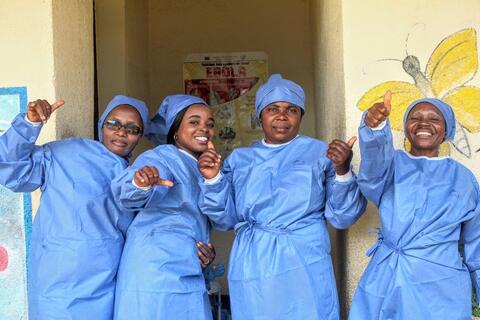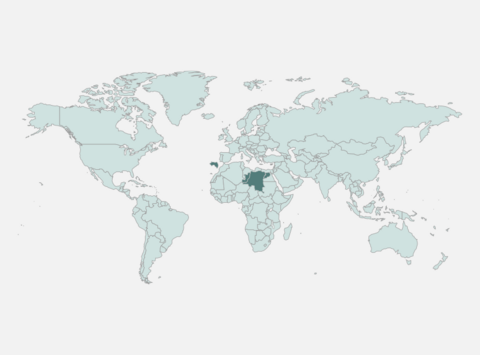The Collaboratory’s Mpox Analytics Community of Practice (CoP) is a global network of modelers, public health officials, data scientists, and policy advisors who have come together to collectively enhance our understanding of the evolving mpox situation and support evidence-based responses1. Formed in the wake of the 2022 multi-country outbreak and its associated public health emergency of international concern (PHEIC) declaration2, the community was able to quickly scale up for the current PHEIC associated with the emergence of mpox virus clade Ib3. The community provides an open and collaborative space for knowledge exchange, capacity building, and collective problem-solving.
A central feature of this community is the regular calls, convened through a dedicated Collaboratory platform. These sessions bring together participants from a wide range of backgrounds—epidemiologists, modelers, data scientists, surveillance and outbreak response personnel, and genomic surveillance experts. They are joining from member states, international organizations, public health agencies, and academic institutes worldwide. The platform facilitates the sharing of data, analytical approaches, and preliminary findings, and enables discussions around key challenges and emerging trends, similar to an Integrated Outbreak Analytics (IOA)4 approach.
Since August 2024, community calls have focused on key regional considerations, such as the evolving mpox situation in the Democratic Republic of the Congo and neighbouring countries, cross-border transmission and importation risks, and associated modeling frameworks, focused on outbreak analytics and tools to support advanced analytics for public health policy and response decision-making. Topics have included the epiverse packages available for mpox analysis, featuring tools for data cleaning, forecasting, transmission analysis, parameter estimation, and scenario modeling. The global repository of epidemiological parameters (GREP) group made available to the community a library of mpox parameters as a key resource for obtaining metrics such as incubation periods and serial intervals to enhance modeling efforts. Recent provided updates on global mpox genomic surveillance and standard-setting efforts for contextual data, and a vaccination-focused call examined strategies for the optimal deployment of limited vaccine supplies and ways to adapt and evaluate modeling approaches to varying contexts. Additionally, the Collaboratory team, in partnership with Go.Data, hosted a joint webinar on the use of digital and analytical tools for mpox response.
The Mpox Analytics CoP is one of the numerous communities hosted on Collaboratory, a WHO Hub for Pandemic and Epidemic Intelligence initiative that provides a digital space where the pandemic and epidemic intelligence community convenes to address critical challenges that affect the way data is accessed, analyzed, visualized, and communicated for better pandemic and epidemic policy and response decision-making. Members exchange experiences, literature, data, code, resources, tools, pose technical questions, and offer constructive feedback on each other’s projects. Ultimately, the Mpox Analytics community demonstrates how diverse expertise and collaborative knowledge-sharing can drive more effective and contextually informed outbreak response strategies.
You can find out more about the Collaboratory from our initiative page or join the Mpox Analytics Community on the Collaboratory here.


